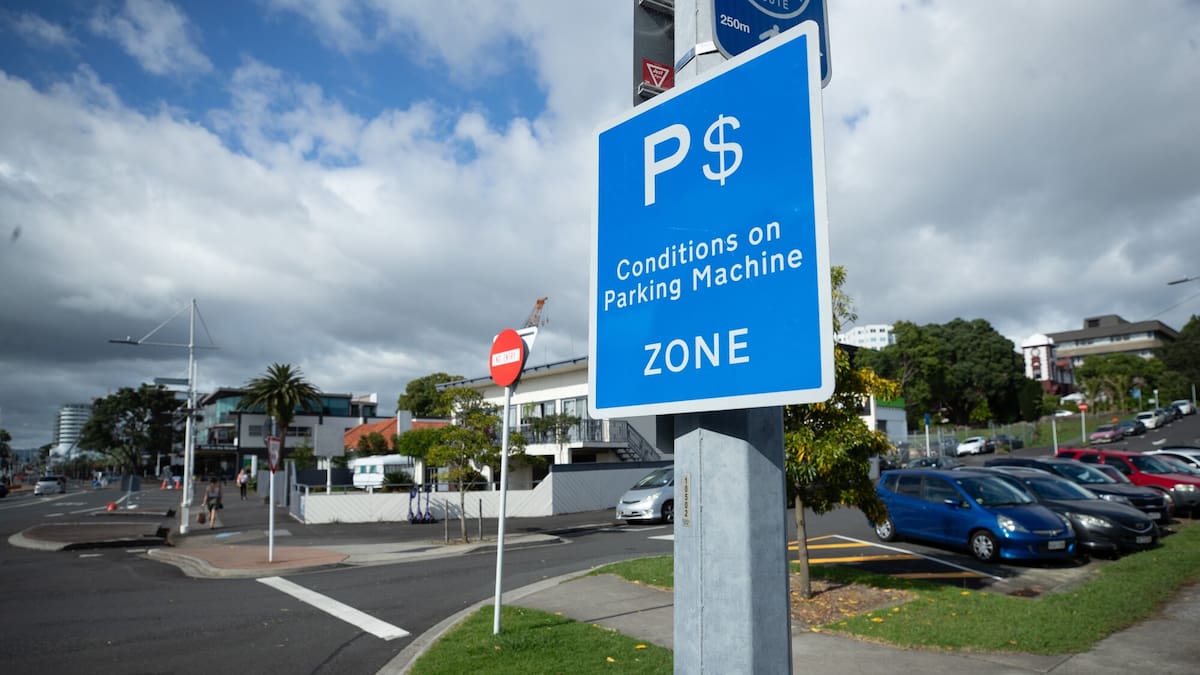New two-hour parking limits would also apply to some CBD-fringe streets as far south as Eighth Ave.
The streets are often used by people working in the city who park all day.
Jackson, who works in the city, said his flat has one off-street parking spot that his flatmate needed, so he parked on the street.
He said the parking changes seemed to work against the council’s efforts to revitalise the city centre – which needed people to want to live there to succeed.
AdvertisementAdvertise with NZME.
“It seems like a tax on living in the CBD, which is counterproductive to what they’re trying to do with revitalising the CBD.”
Residents in Tauranga city fringe streets will have to pay to park outside their homes. Photo / File
Councillors approved the parking costs and time limits at a Tauranga City Council meeting on July 14, having approved the Tauranga Parking Management Plan in April.
After a split vote, councillors opted not to approve the staff recommendation of resident permits for those living in the city fringe.
The permits would have given residents an exemption from fees.
Staff proposed to allow residents to apply for up to two permits per dwelling with a two-year expiry.
Mayor Mahé Drysdale said two permits for every property was “excessive” and would take out all the parking in the area.
Te Papa ward councillor Rod Taylor. Photo / David Hall
Te Papa ward councillor Rod Taylor said trialling resident permits would be worthwhile and staff could report back on how they were working.
Jackson said he had lived in many cities in the United Kingdom, and all had an option for resident permits.
He said he would be happy to pay for a permit if it was cheaper than on-street parking.
Jackson wanted the council to pause the CBD fringe paid parking until it had sorted out resident permits.
AdvertisementAdvertise with NZME.
Grace Rd and Neighbourhood Residents’ Association chairman Phil Green said the idea behind the time-limited parking in The Avenues was to prevent CBD workers parking all day, but they would just find somewhere else to go.
He saw people park in the avenues, then use a scooter to get to the city centre so he expected the time limits would just push people further out.
Grace Road and Neighbourhood Residents’ Association chairman Phil Green. Photo / George Novak
Further down around Sixteenth Ave, where Green lived, workers from businesses and the hospital were parking all day and filling up the streets.
“The overflow is not just affecting the CBD and its fringes; there are other issues further out as well.”
The council needed to look at the whole problem of parking and why people weren’t using buses or the CBD parking buildings, Green said.
“It’s got to be addressed as an overall view rather than just looking at each thing in isolation.
AdvertisementAdvertise with NZME.
“It seems to be a knee-jerk reaction; you fix one and then there’s an ongoing effect and another ongoing effect.”
Council parking strategy manager Reece Wilkinson said the time-restricted parking would be monitored by a license plate recognition car.
If a vehicle remained in a P120 zone for longer than two hours, it may be subject to enforcement, he said.
Fines for parking over the time limit start at $20, increasing incrementally and are capped at $97.
Taylor said the council understood changes to parking could be challenging, especially when it meant a change of routine or a new cost.
At the council meeting, after the councillors did not approve the resident permits, they asked staff to explore options for a parking zone permit, to ease the impact on affected residents and visitors, he said.
AdvertisementAdvertise with NZME.
– LDR is local body journalism co-funded by RNZ and NZ On Air.

